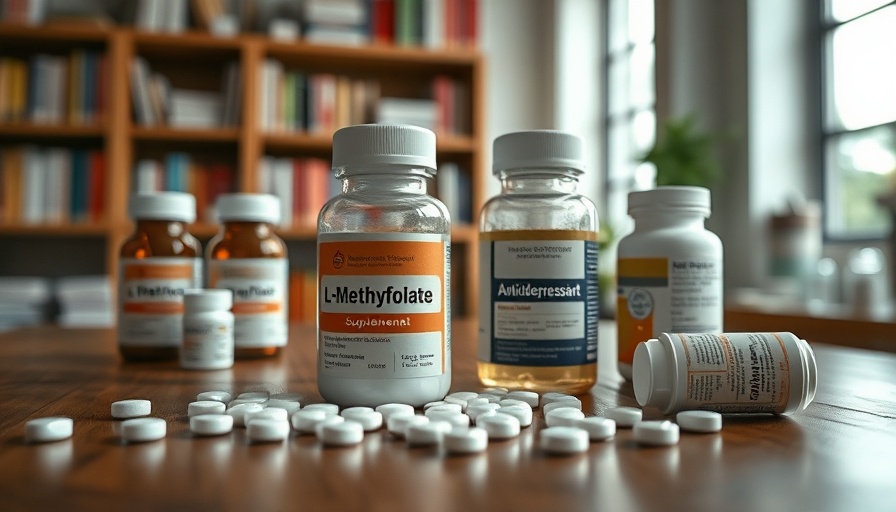
Understanding L-Methylfolate's Role in Mental Health
L-Methylfolate (MTHF) is not just a supplement; it's a crucial player in mental health, especially for those navigating the complexities of depression. This biologically active form of folate, a B vitamin, is essential for brain function and neurotransmitter production.
Many people who battle depression may not synthesize adequate levels of MTHF, despite consuming a folate-rich diet. This deficiency can hinder the production of critical brain chemicals, such as serotonin and dopamine, which are often targeted by antidepressants. By supplementing with MTHF, individuals may find a way to enhance the effectiveness of their current antidepressant treatments.
The Link Between MTHF and Antidepressant Efficacy
Research has shown that low levels of MTHF are frequently associated with depressive disorders. Interestingly, studies suggest that MTHF can improve the effectiveness of standard antidepressants, potentially providing relief for those who have previously found little success. The potential benefits seem even more promising for individuals experiencing treatment-resistant depression, which can feel both isolating and hopeless.
What's especially noteworthy is that MTHF supplementation might be beneficial even for those without a diagnosed deficiency. This is because while traditional antidepressants directly modify neurotransmitter levels, MTHF supports the natural production of these vital chemicals in the brain, providing a comprehensive approach to treatment.
Exploring Personal Experiences with MTHF
Many individuals, including mental health advocates, have shared experiences that highlight the value of incorporating L-methylfolate into their treatment regimens. One person recounts how after years of battling depressive symptoms while on anticonvulsants, their doctor recommended MTHF, suggesting it could fill the nutrient gap that many people fail to notice. This anecdotal evidence resonates with those who feel stuck in their treatment journey.
Considerations for Potential Users
Before deciding to add L-methylfolate to your health regimen, consult with a healthcare professional who understands your unique medical history. MTHF is classified as a medical food, meaning it requires a prescription, but it is generally considered low-risk. This can be a comforting option for those wary of side effects from other treatments.
Incorporating L-methylfolate may provide a sense of agency among individuals with depressive symptoms, offering a new tool in their mental health toolkit. However, understanding that it isn’t a magic solution is key, as the ongoing research hints at its role in a more extensive, multi-faceted treatment approach.
Future Insights and Opportunities in Mental Health Treatment
As the research on L-methylfolate grows, we may be on the brink of numerous breakthroughs in how mental health treatment is approached, especially concerning alternative and supplementary options. The emerging opportunities for integrating MTHF could change the conversation around mental health treatments, providing hope for those who struggle with traditional medications.
Moreover, recognizing MTHF’s connection with other health factors, such as inflammation and body mass, expands the conversation to a broader synthesis of health and mental wellness.
Final Thoughts: Is L-Methylfolate Right for You?
If traditional antidepressants have not delivered the results you hoped for, consider giving L-methylfolate a discussion during your next healthcare visit. With its potential to support mental health through a natural approach, it could be one piece of the puzzle in managing your treatment. Taking proactive steps towards enhancing your well-being is always worthwhile.
Don’t hesitate to explore this supplementation option further, as it might hold the key to what’s missing in your current treatment plan. Stay informed, stay healthy, and continue prioritizing your mental wellness!
 Add Row
Add Row  Add
Add 




Write A Comment